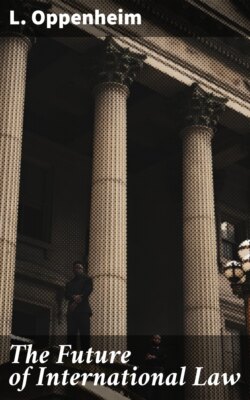Читать книгу The Future of International Law - L. Oppenheim - Страница 5
На сайте Литреса книга снята с продажи.
CHAPTER II
INTERNATIONAL LEGISLATION
ОглавлениеTable of Contents
30. Quasi-legislation within the domain of international law 23
31. Hague Peace Conferences as an organ for international legislation 24
32. Difficulties in the way of international legislation. The language question 25
33. The opposing interests of the several states 25
34. Contrasted methods of drafting 25
35. These difficulties distinct from those due to carelessness. Article 23 (h) of the Hague Regulations of land war is an example 27
36. The German and the English interpretation of Article 23 (h) 27
37. Davis's interpretation of Article 23 (h) 28
38. Impossible to reconcile the divergent views about Article 23 (h) 29
39. Difficulties due to the fact that international law cannot be made by a majority vote, or repealed save by a unanimous vote. A way out found in the difference between universal and general international law 30
40. International laws which are limited in point of time 31
41. International legislation no longer to be left to mere chance 33
42. The Declaration of London thoroughly prepared beforehand 34
43. The preparation of the Declaration a pattern for future international legislation 34
44. Intentionally incomplete and fragmentary laws 35
45. Interpretation of international statutes 35
46. International differences as regards interpretation 36
47. Different nations have different canons of interpretation 37
48. Controverted interpretation of the Declaration of London an example 37
49. Some proposals for the avoidance of difficulties in interpretation 39
